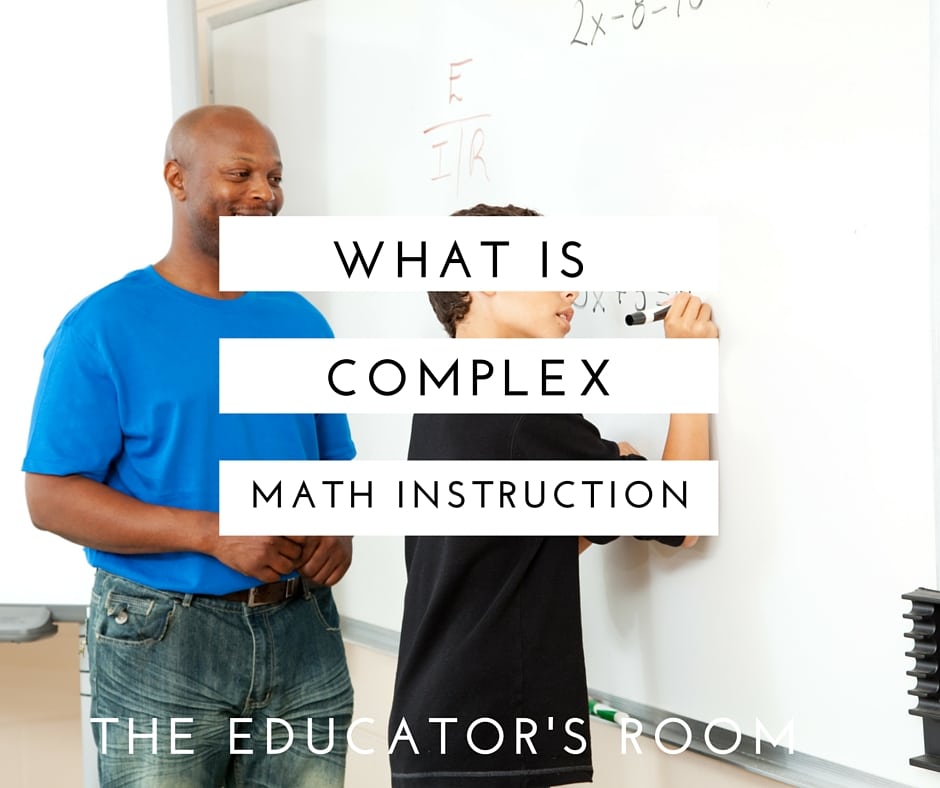I teach 5th grade Math at an elementary school, and I have noticed that many elementary teachers and instructional support personnel have not yet made the shift to more complex math instruction. The school in which I work is still trying to push small group instruction, where the teacher teaches a small group and the other students are working at their independent level on basic skills. Most would say that I am against small group instruction however, that statement can’t be farther from the truth.
I believe that small group instruction works well as an instructional strategy where it is appropriate. Many teachers, especially in high poverty schools, don’t have the liberty to choose their instructional strategies without the administrative team intervening (that’s another article for a different day). In my opinion, unnecessarily forcing small group instruction on a teacher only hurts the students because research has documented significant gains in classrooms where complex instruction has been used.
Complex Instruction looks at student engagement as an issue of status. Some students are assigned high status by their peers and teacher, whereas other students are assigned low status (through praise, listening to their ideas, body language, etc.). Low-status students rarely have their ideas taken seriously and are often excluded from group work, thus causing them to disengage with mathematics. CI or Complex Instruction teaching involves group-worthy tasks and pedagogical moves to support all learners.
Complex Instruction has 3 major components:
1 – Multi-ability curricula– the curriculum is designed to support the development of higher order thinking skills through group work activities organized around a central concept or big idea. The tasks are open-ended which requires the students to work interdependently to solve the problems. Most importantly, the tasks are designed to meet the needs of students with diverse backgrounds and different academic abilities.
2 – Instructional Strategies– the teachers teaches the students to use cooperative norms and specific roles to manage their own groups.
3 – Student Status– To ensure equal access to learning, teachers learn how to recognize and address status problems within a group. When using complex instruction teachers uses status concerns to broaden students’ perceptions of what it means to be “smart”and to convince students that they each have important intellectual contributions to make to the multiple-ability task.
The video below is an introduction to Complex Instruction by Jo Boaler, a Professor of Mathematics at the Stanford Graduate School of Education.
https://www.youcubed.org/introduction-complex-instruction/





